Image
Project Number
Integrated Water Resource Management and Ecosystem-based Adaptation (EbA) in the Xe Bang Hieng River Basin and Luang Prabang City
Project Status
Status 1
Project Date
Project category
Category 1
Project Stage
Stage 1
Project Area of Work
Area of Work 1
Project Donor & Co-financing
Donor 1
Project Contact Details
For more information, please contact:
Phouphet Chittaphone
Database Management and Communication Officer IWRM-EbA Project
Email: [email protected]
Phouphet Chittaphone
Database Management and Communication Officer IWRM-EbA Project
Email: [email protected]
Share:
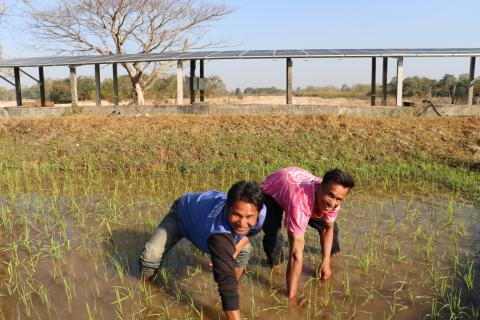
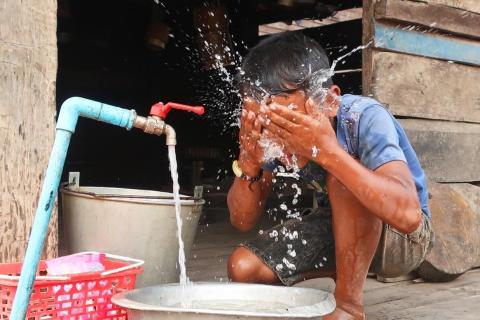

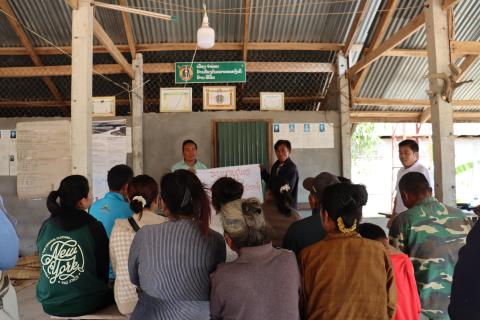
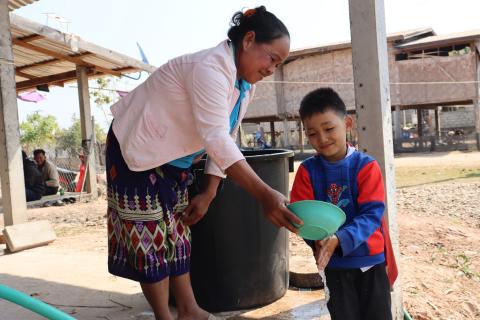
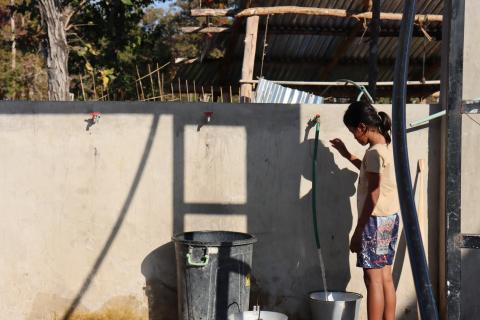
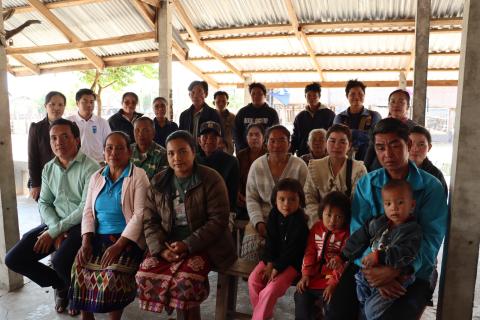
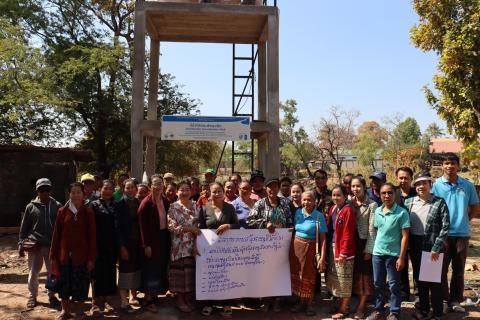


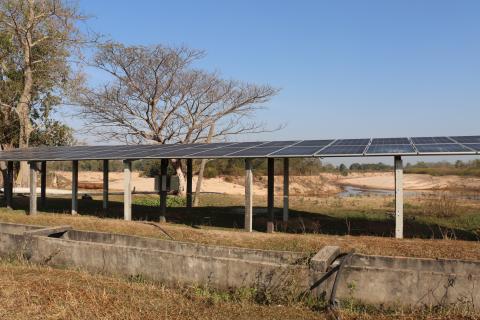
Strengthening Community Resilience in Xe Bang Hieng River Basin
Project Location
Ban Sivilay, Ban Pheika (Champhone district), Ban Nonsavang, and Ban Nachannai (Chonburi district), Savannakhet Province
Project Description
The Integrated Water Resources Management and Ecosystems-Based Adaptation (IWRM-EbA) Project is a collaborative initiative led by UNDP Lao PDR in partnership with the Ministry of Natural Resources and Environment (MONRE). The project aims to enhance climate resilience and promote sustainable land and water resource management in two highly vulnerable regions: the Xe Bang Hieng River Basin and Luang Prabang City. These areas face increasing challenges from floods, droughts, and other climate-related risks, threatening both the environment and the livelihoods of local communities.
To address these challenges, the IWRM-EbA Project integrates ecosystem-based solutions with sustainable water resource management. By restoring natural ecosystems, improving water infrastructure, and preserving biodiversity, the project helps regulate water flow, reduce flood risks, and enhance soil fertility. In addition to environmental conservation, the project also focuses on community engagement and capacity building, ensuring that local stakeholders play an active role in managing and protecting their natural resources.
Key initiatives include the construction of groundwater wells, the implementation of solar-powered water pumps, and training programs on climate adaptation strategies. By combining government efforts, scientific research, and community participation, the IWRM-EbA Project is fostering long-term resilience while improving water security, food production, and overall livelihoods.
Through its holistic approach, the project not only safeguards natural ecosystems but also strengthens local communities, ensuring a sustainable and climate-resilient future for generations to come. 💧🌍
To address these challenges, the IWRM-EbA Project integrates ecosystem-based solutions with sustainable water resource management. By restoring natural ecosystems, improving water infrastructure, and preserving biodiversity, the project helps regulate water flow, reduce flood risks, and enhance soil fertility. In addition to environmental conservation, the project also focuses on community engagement and capacity building, ensuring that local stakeholders play an active role in managing and protecting their natural resources.
Key initiatives include the construction of groundwater wells, the implementation of solar-powered water pumps, and training programs on climate adaptation strategies. By combining government efforts, scientific research, and community participation, the IWRM-EbA Project is fostering long-term resilience while improving water security, food production, and overall livelihoods.
Through its holistic approach, the project not only safeguards natural ecosystems but also strengthens local communities, ensuring a sustainable and climate-resilient future for generations to come. 💧🌍
Project Outcomes & Impacts
From January 29 to February 2, 2025, a dedicated team from the Department of Water Resources, in collaboration with the Provincial Department of Natural Resources and Environment, local authorities, and community members, conducted training and awareness-raising activities in Champhone and Chonburi districts, Savannakhet province.
Representatives from Ban Sivilay, Ban Pheika (Champhone district), Ban Nonsavang, and Ban Yachannai (Chonburi district), along with UNDP Laos’ media team and the Field Project Coordinator in Savannakhet, worked together to produce a video showcasing key project activities—focusing on groundwater wells and solar-powered water pumps.
🎯 Objectives of this Initiative:
✅ Capture and highlight project activities, achievements, and community participation.
✅ Showcase the real-world application of integrated water resources management in building resilience against floods and droughts.
✅ Produce an engaging video for World Water Day 2025 and other awareness-raising events.
✅ Emphasize the active participation of local communities, government agencies, and stakeholders in sustainable water management.
This video production and monitoring effort is a significant step toward enhancing community resilience to climate change, particularly in addressing floods and droughts. It also reflects the project's past achievements and serves as a foundation for the upcoming World Water Day workshop in March 2025, where sustainable solutions for environmental challenges will be discussed.
Stay tuned for more updates! 🎥✨ #WaterForLife #ClimateResilience #SustainableSolutions #WorldWaterDay2025
Representatives from Ban Sivilay, Ban Pheika (Champhone district), Ban Nonsavang, and Ban Yachannai (Chonburi district), along with UNDP Laos’ media team and the Field Project Coordinator in Savannakhet, worked together to produce a video showcasing key project activities—focusing on groundwater wells and solar-powered water pumps.
🎯 Objectives of this Initiative:
✅ Capture and highlight project activities, achievements, and community participation.
✅ Showcase the real-world application of integrated water resources management in building resilience against floods and droughts.
✅ Produce an engaging video for World Water Day 2025 and other awareness-raising events.
✅ Emphasize the active participation of local communities, government agencies, and stakeholders in sustainable water management.
This video production and monitoring effort is a significant step toward enhancing community resilience to climate change, particularly in addressing floods and droughts. It also reflects the project's past achievements and serves as a foundation for the upcoming World Water Day workshop in March 2025, where sustainable solutions for environmental challenges will be discussed.
Stay tuned for more updates! 🎥✨ #WaterForLife #ClimateResilience #SustainableSolutions #WorldWaterDay2025
Project Media & Reports
Image

Image
Image

Image

Image

Image

Image

Image

Image

Image

Image

